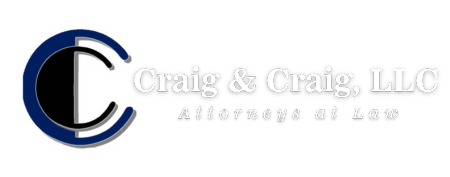Mediation
Registered Mediators in Merrillville, Indiana
At Craig & Craig we are proud to have a team of accomplished civil mediators on our team. Both John Craig and Megan Craig have undertaken the Commission-approved civil mediation training that is necessary to become a Registered Civil Mediator.
With extensive experience in both mediation and litigation, our mediators approach problem-solving in a pragmatic manner. Their seasoned expertise enables them to assess your case effectively and propose solutions that benefit all parties involved.
Mediation offers an advantageous avenue for resolving disputes. It's typically a more cost-effective, less formal, and faster alternative to taking a case through the entire litigation process. Additionally, it preserves the confidentiality of the dispute resolution, keeping it out of the public record. Let the skilled mediators at Craig & Craig, LLC act as impartial facilitators, guiding you towards a resolution without the need for a trial.
Call today to schedule a mediation.

What is the advantage of using a Registered Mediator?
Using a registered mediator offers several advantages in the context of dispute resolution. Mediation is a process where a neutral third party, the mediator, assists parties in reaching a mutually acceptable resolution to their dispute. The term "registered mediator" typically refers to a mediator who is officially recognized or registered with a regulatory body or organization overseeing mediation services, like those at Craig & Craig LLC.
Here are some advantages of using a registered mediator:
- Professionalism and Qualifications:
- Registered mediators often undergo specific training and certification processes to become qualified in the field. They are typically required to meet certain standards and adhere to a code of ethics, ensuring a high level of professionalism.
- Neutrality and Impartiality:
- Registered mediators are expected to maintain a neutral and impartial stance throughout the mediation process. Their commitment to impartiality helps build trust among the parties involved, fostering a more conducive environment for resolution.
- Compliance with Standards:
- Registered mediators adhere to established standards and guidelines set by the regulating body overseeing mediation services. This compliance ensures that the mediation process follows recognized best practices, contributing to its effectiveness and fairness.
- Confidentiality:
- Mediation proceedings are generally confidential. A registered mediator is bound by ethical and legal obligations to keep the discussions confidential, promoting open communication and allowing parties to explore potential solutions without fear of information being used against them in other forums.
- Expertise in Conflict Resolution:
- Registered mediators often have specialized training and experience in conflict resolution techniques. Their expertise allows them to guide the parties through the process, facilitate communication, and help identify common ground for resolution.
- Customized Solutions:
- A registered mediator is skilled in facilitating discussions that lead to customized solutions. Unlike formal legal proceedings where decisions may be imposed, mediation allows parties to actively participate in crafting solutions that meet their unique needs and interests.
- Time and Cost Efficiency:
- Mediation is generally more time and cost-efficient compared to traditional litigation. A registered mediator can help parties work through their issues more efficiently, potentially saving both time and money.
- Greater Control for Parties:
- Mediation empowers the parties involved to have more control over the outcome. With the guidance of a registered mediator, parties can explore creative and mutually beneficial solutions that may not be available through a court-imposed decision.
- Preservation of Relationships:
- Mediation is often focused on preserving relationships rather than creating winners and losers. A registered mediator can help parties communicate effectively, fostering understanding and collaboration, which is especially important in situations where ongoing relationships are valuable.
- Enforceability of Agreements:
- Agreements reached through mediation facilitated by a registered mediator are typically legally binding and enforceable. This provides a level of certainty for the parties involved and encourages compliance with the agreed-upon terms.
The use of a registered mediator brings professionalism, neutrality, and expertise to the mediation process, enhancing the likelihood of a successful and mutually satisfactory resolution to disputes.

